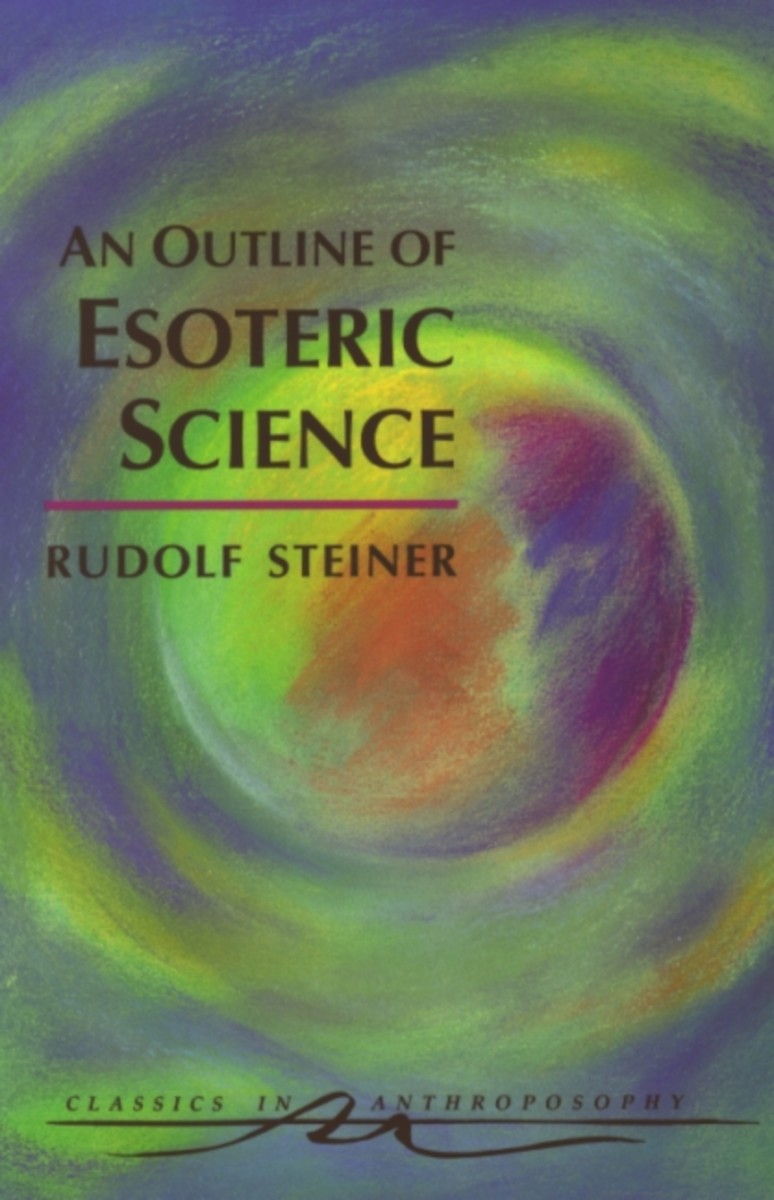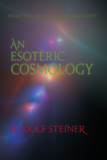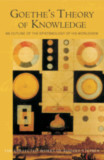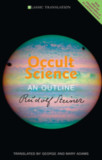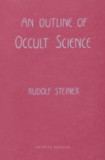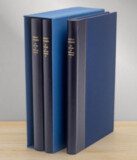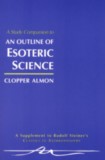- Publisher
SteinerBooks - Published
1st October 1997 - ISBN 9780880104098
- Language English
- Pages 448 pp.
Written in 1909 (CW 13)
"Esoteric science is the science of what takes place esoterically, in the sense that it is perceived not outside in nature but where one’s soul turns when it directs its inner being toward the spirit. Esoteric science is the opposite and counterpart of natural science." — Rudolf Steiner
This masterwork of esotericism places humankind at the very heart of the vast, invisible processes of cosmic evolution. When we use the term “natural science,” don’t we mean that we are dealing with human knowledge of nature?
Steiner worked and reworked his Rosicrucian cosmology to make it increasingly precise and accurate. An Outline of Esoteric Science is as vital and relevant now as it was when first published in 1910 and remains the most comprehensive and effective presentation of a spiritual alternative to contemporary, materialistic cosmologies and a strict Darwinian view of human nature and evolution.
In this foundational work of spiritual science, we see how the creation and evolution of humanity is embedded at the heart of the vast, invisible web of interacting cosmic beings, through whom the alchemical processes of cosmic evolution continue to evolve. Included are descriptions of the physical-spiritual makeup of the human being; the relationships of the different "bodies" of the human being to sleep and death; and a detailed, practical guide to methods and exercises, including the “Rose Cross Meditation,” through which we can attain knowledge of the spiritual worlds.
The most remarkable and revolutionary aspect of this work is the central function that Steiner attributes to the Christ and his involvement in human and earthly evolution through the Mystery of Golgotha.
An Outline of Esoteric Science is essential reading for all serious students of esoteric spirituality and Anthroposophy.
This foundational guide to Spiritual Science is a translation of Die Geheimwissenschaft im Umriss (GA 13).
C O N T E N T S:
Introduction by Clopper Almon
Preface by Rudolf Steiner
1. The Character of Esoteric Science
2. The Makeup of the Human Being
3. Sleep and Death
4. Cosmic Evolution and the Human Being
5. Knowledge of Higher Worlds—Initiation
6. Cosmic and Human Evolution—Now and in the Future
– Introductory Thoughts
– An Overview of Planetary Incarnations
– Saturn
– Sun
– Moon
– Earth
– Atlantis
– The End of Atlantis
– Ancient Indian Civilization
– Ancient Persian Civilization
– Egypto-Chaldean Civilization
– Greco-Latin Civilization
– The Coming of the Christian Era
7. Details from the Field of Spiritual Science
– The Human Ether Body
– The Astral World
– Human Life after Death
– The Course of a Human Life
– The Higher Domains of the Spiritual World
– The Aspects of Our Human Makeup
– The Dream State
– Acquiring Supersensible Knowledge
– Observing Specific Beings and Events in the Spiritual World
Appendix: Rudolf Steiner’s Early Introductions to An Outline of Esoteric Science
Further Reading
Rudolf Steiner
Rudolf Steiner (b. Rudolf Joseph Lorenz Steiner, 1861–1925) was born in the small village of Kraljevec, Austro-Hungarian Empire (now in Croatia), where he grew up. As a young man, he lived in Weimar and Berlin, where he became a well-published scientific, literary, and philosophical scholar, known especially for his work with Goethe’s scientific writings. Steiner termed his spiritual philosophy anthroposophy, meaning “wisdom of the human being.” As an exceptionally developed seer, he based his work on direct knowledge and perception of spiritual dimensions. He initiated a modern, universal “spiritual science” that is accessible to anyone willing to exercise clear and unbiased thinking. From his spiritual investigations, Steiner provided suggestions for the renewal of numerous activities, including education (general and for special needs), agriculture, medicine, economics, architecture, science, philosophy, Christianity, and the arts. There are currently thousands of schools, clinics, farms, and initiatives in other fields that involve practical work based on the principles Steiner developed. His many published works feature his research into the spiritual nature of human beings, the evolution of the world and humanity, and methods for personal development. He wrote some thirty books and delivered more than six thousand lectures throughout much of Europe. In 1924, Steiner founded the General Anthroposophical Society, which today has branches around the world.


